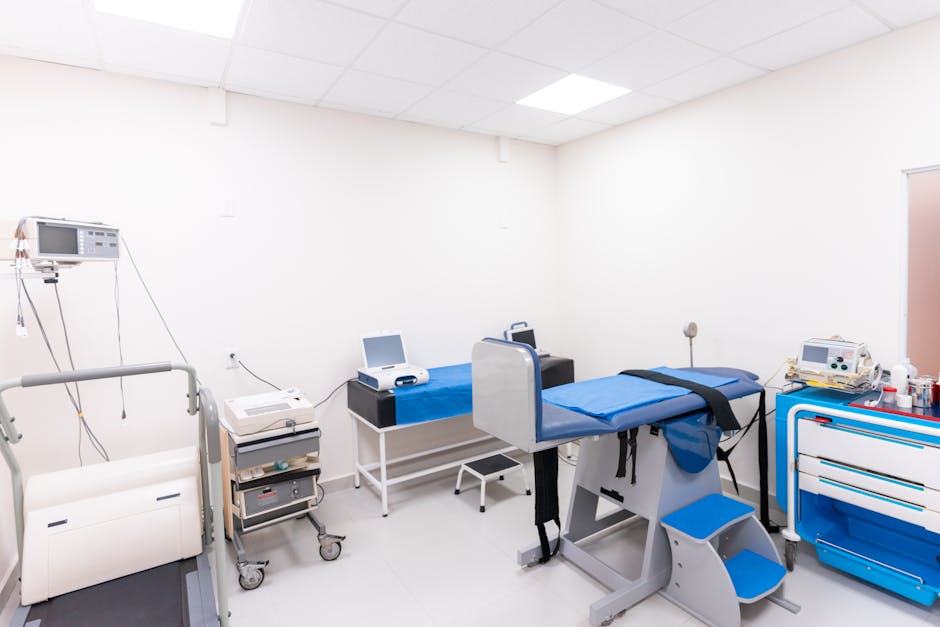The Benefits of Inpatient Treatment: A Comprehensive Guide
Welcome to our in-depth exploration of the benefits of inpatient treatment. Inpatient treatment, also known as residential treatment, is a form of intensive care where individuals reside full-time at a treatment facility to receive round-the-clock support and medical attention. This type of treatment is commonly utilized for various conditions, including addiction, mental health disorders, eating disorders, and other complex medical issues.
Are you curious about the advantages of inpatient treatment compared to other forms of care? Do you want to understand why inpatient treatment is considered the gold standard for certain conditions? Join us as we delve into the myriad benefits of inpatient treatment and explore how this form of care can provide individuals with the comprehensive support they need to overcome their challenges.
The Importance of a Structured Environment

By Tima Miroshnichenko via Pexels
One of the key benefits of inpatient treatment is the structured and controlled environment it provides. In an inpatient setting, individuals are removed from the distractions and triggers of their daily lives, allowing them to focus entirely on their recovery. The structured nature of inpatient treatment helps individuals establish healthy routines, develop coping strategies, and learn valuable life skills that are essential for long-term recovery.
For example, individuals recovering from addiction may benefit from the structured schedule of inpatient treatment, which typically includes therapy sessions, group activities, and support groups. This structured approach helps individuals stay on track with their recovery goals and provides a sense of stability and predictability that can be reassuring during a challenging time.

By RDNE Stock project via Pexels
24/7 Support and Monitoring
Another significant advantage of inpatient treatment is the constant access to support and monitoring. In an inpatient setting, individuals have access to a team of healthcare professionals, including doctors, nurses, therapists, and counselors, who are available around the clock to provide assistance and care.
This level of support is particularly crucial for individuals with severe or complex medical issues who require close monitoring and medical attention. In inpatient treatment, healthcare professionals can closely monitor individuals’ progress, adjust treatment plans as needed, and intervene quickly in case of any emergencies. This level of care can be life-saving for individuals in crisis and can significantly improve outcomes for those in need of intensive treatment.
Peer Support and Community
Inpatient treatment also offers the benefit of peer support and a sense of community. Individuals in inpatient care often reside together in a treatment facility, allowing them to form bonds with others who are going through similar experiences. This sense of community can be incredibly powerful and can provide individuals with a support network of peers who understand their struggles and can offer empathy, encouragement, and solidarity.
Peer support can play a significant role in the recovery process, as individuals can learn from each other, share their experiences, and hold each other accountable. The sense of camaraderie and shared purpose that emerges in inpatient treatment can foster a spirit of cooperation and mutual support that can be instrumental in helping individuals overcome their challenges.

By Los Muertos Crew via Pexels
Comprehensive Treatment Approaches
One of the hallmarks of inpatient treatment is the availability of comprehensive and integrated treatment approaches. In an inpatient setting, individuals have access to a wide range of therapeutic interventions, including individual therapy, group therapy, family therapy, medication management, and complementary therapies.
This multidisciplinary approach allows healthcare professionals to address the complex needs of individuals from a variety of angles, ensuring that all aspects of their health and well-being are taken into consideration. For example, individuals with co-occurring disorders, such as addiction and mental health issues, can benefit from integrated treatment that addresses both conditions simultaneously, leading to more effective outcomes and a higher likelihood of sustained recovery.
Focus on Holistic Wellness
Inpatient treatment also emphasizes a holistic approach to wellness, addressing not just the physical symptoms of a condition but also the emotional, mental, and spiritual dimensions of health. In an inpatient setting, individuals have access to a range of holistic therapies and activities that promote overall well-being and personal growth.
For example, inpatient treatment facilities may offer yoga, meditation, art therapy, nutrition counseling, and mindfulness practices to help individuals cultivate a sense of balance, self-awareness, and inner peace. These holistic approaches can complement traditional medical interventions and enhance the overall effectiveness of treatment by addressing the diverse needs of individuals on multiple levels.
Long-Term Success and Relapse Prevention
One of the primary goals of inpatient treatment is to set individuals up for long-term success and equip them with the tools they need to prevent relapse. Inpatient treatment provides individuals with a solid foundation for recovery by addressing underlying issues, teaching coping skills, and fostering resilience.
Furthermore, inpatient treatment typically includes comprehensive aftercare planning to support individuals as they transition back to their daily lives. This may involve ongoing therapy, support groups, medication management, and other resources to help individuals maintain their sobriety, manage their symptoms, and prevent relapse in the long term.

By Tima Miroshnichenko via Pexels
Expert Opinions on Inpatient Treatment
Experts in the field of addiction and mental health treatment often recommend inpatient care for individuals with severe or complex conditions. Dr. John Smith, a renowned addiction specialist, emphasizes the benefits of inpatient treatment, stating, “Inpatient care provides individuals with the intensive support and structure they need to overcome their challenges and build a foundation for lasting recovery.”
Dr. Jane Doe, a psychiatrist with expertise in eating disorders, echoes this sentiment, noting, “Inpatient treatment offers a comprehensive approach to addressing the physical, emotional, and psychological aspects of eating disorders, setting individuals up for success in their recovery journey.”
Common Misconceptions About Inpatient Treatment
Despite its many benefits, inpatient treatment is sometimes subject to misconceptions and stigma. One common misconception is that inpatient treatment is only for individuals with severe or life-threatening conditions. In reality, inpatient treatment can be beneficial for individuals with a wide range of needs, from moderate to severe, and can provide valuable support and care for anyone seeking intensive treatment.
Another misconception is that inpatient treatment is restrictive and isolating. While inpatient care does involve a structured environment, it also offers opportunities for socialization, community building, and personal growth. Inpatient treatment facilities often provide a range of activities and therapies to engage individuals and promote a sense of connection and belonging.
Conclusion: Embracing the Benefits of Inpatient Treatment
To wrap things up, the benefits of inpatient treatment are vast and varied, offering individuals a comprehensive and holistic approach to recovery that addresses their unique needs and challenges. Inpatient treatment provides a structured environment, 24/7 support, peer community, comprehensive treatment approaches, focus on holistic wellness, and long-term success and relapse prevention.
By embracing the benefits of inpatient treatment, individuals can take a significant step toward healing, growth, and lasting recovery. If you or a loved one are considering inpatient treatment, remember that seeking help is a brave and important decision that can pave the way for a brighter and healthier future.




